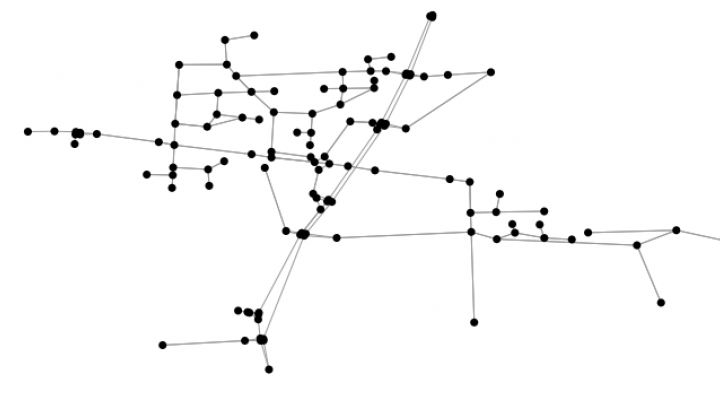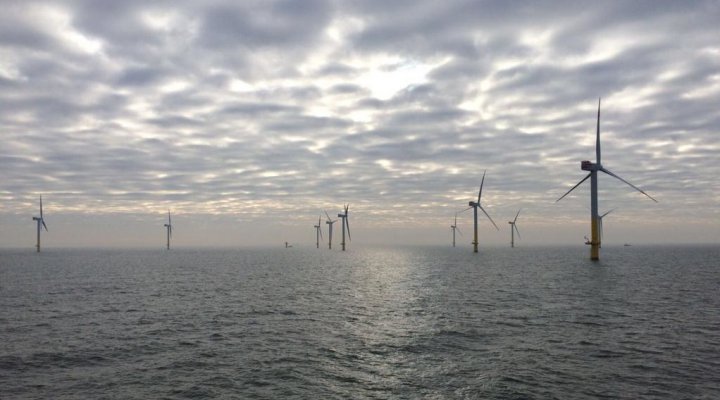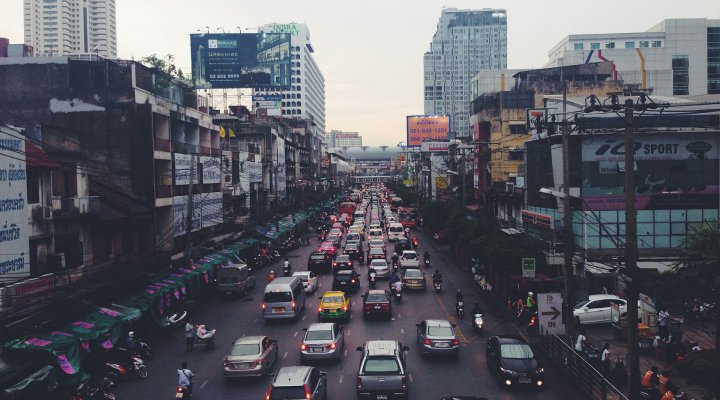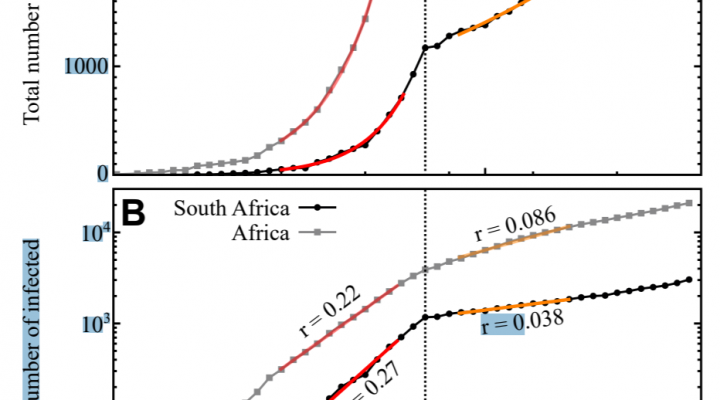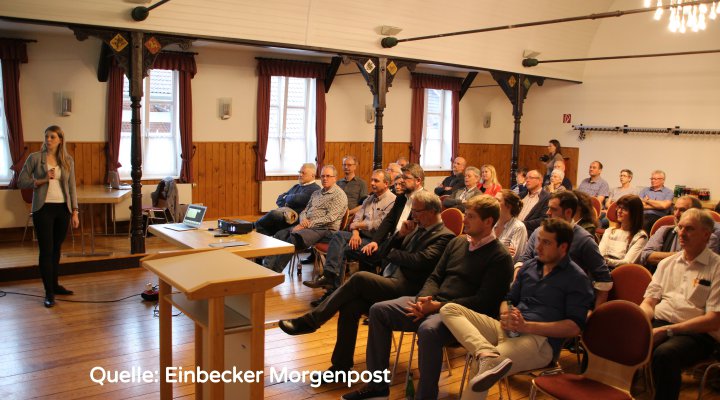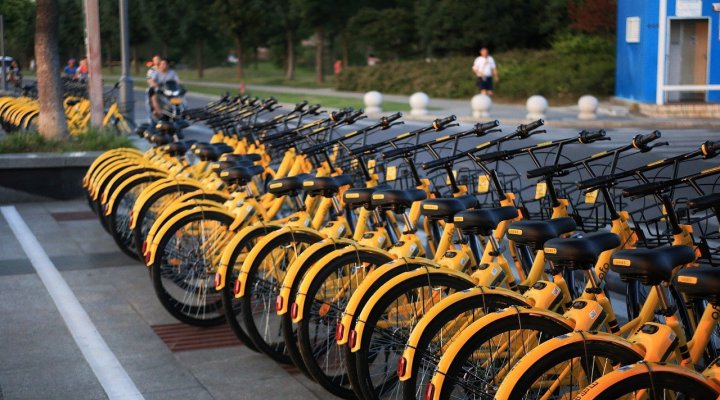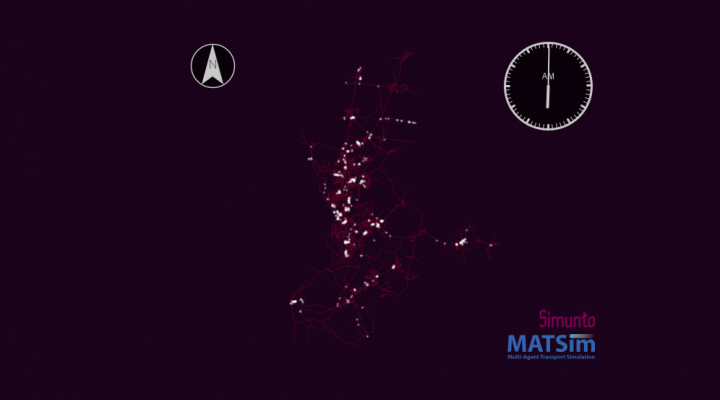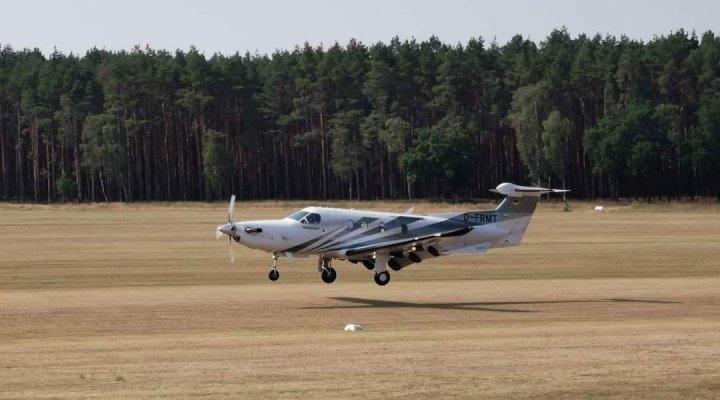Publications
Published
Avermann, N., & Schlüter, J. C. (2019). Determinants of customer satisfaction with a true door-to-door DRT service in rural Germany. Research in Transportation Business & Management, 32: 100420. doi:10.1016/j.rtbm.2019.100420
Gebauer, A., Fingerhut, J., Lahner, J., & Schlüter, J. C. (2019). Verkehrsanbindung von Berufsschülern. Standort, 43(1), 9-19.
doi:10.1007/s00548-019-00567-4
Grunicke, C., Schlüter, J. C., & Jokinen, J.-P. (2020). Evaluation methods and governance practices of new flexible passenger transport projects. Research in Transportation Business & Management, 100575. doi:10.1016/j.rtbm.2020.100575
Hahn, A., Frühling, W., & Schlüter, J. (2022). Determination of optimised pick-up and drop-off locations in transport routing-a cost distance approach. Transport Problems, 17. doi:10.20858/tp.2022.17.1.02
Harbering, M., & Schlüter, J. C. (2020). Determinants of transport mode choice in metropolitan areas the case of the metropolitan area of the Valley of Mexico. Journal of Transport Geography, 87: 102766. doi:10.1016/j.jtrangeo.2020.102766
Kern, L., Seebaß, J. V., & Schlüter, J. C. (2019). Das Potenzial von vertikalen Windenergieanlagen im Kontext wachsender Flächennutzungskonflikte und Akzeptanzprobleme der Windenergie. Zeitschrift für Energiewirtschaft, 43, 289-302.
doi:10.1007/s12398-019-00264-7
Kersting, M., Matthies, E., Lahner, J., & Schlüter, J. (2020). A socioeconomic analysis of commuting professionals. Transportation, 1-32.
doi:10.1007/s11116-020-10124-w
Lahner, J., Schlüter, J. C., & Sörensen, L. (2019). Digitalisierung im ÖPNV: vom Rufbus zu einem intelligenten nachfrageorientierten System im ländlichen Raum. Neues Archiv für Niedersachsen, II/2019, 178-191. doi:10.5771/9783529096112-178
Lichter, J., Hosius, E., Wacker, B., & Schlüter, J. C. (2020). Der Einfluss von Offshore-Windenergie auf die EEX-Strompreise. Zeitschrift für Energiewirtschaft, 44, 85-99.
doi:10.1007/s12398-020-00276-8
Matthies, E., Preuß, S., Lahner, J., & Schlüter, J. C. (2019). Alternative Bedienformen im ÖPNV. Implikationen für den Planungsprozess. Zeitschrift für Verkehrswissenschaft, 90, 21-47.
www.z-f-v.de
Nyga, A., Minnich, A., & Schlüter, J. C. (2020). The effects of susceptibility, eco-friendliness and dependence on the Consumers’ Willingness to pay for a door-to-door DRT system. Transportation Research Part A, 132, 540-558. doi:10.1016/j.tra.2019.11.030
Schlüter, J. C., Frewer, M., Sörensen, L., & Coetzee, J. (2020). A stochastic prediction of minibus taxi driver behaviour in South Africa. Humanities and Social Sciences Communications, 7: 13. doi:10.1057/s41599-020-0508-2
Simons, J., Wacker, B., Bossert, A., & Schlüter, J. C., Verkehrsökonomische Analyse von Minibustaxiverkehren in der Metropolregion Kapstadt und der Minenstadt Rustenburg in Südafrika, Zeitschrift für Verkehrswissenschaft, 91, 1-27.
www.z-f-v.de
Sörensen, L., Bossert, A., Jokinen, J. P., & Schlüter, J. (2020). How much flexibility does rural public transport need?–Implications from a fully flexible DRT system. Transport Policy, 100, 5-20. doi:10.1016/j.tranpol.2020.09.005
Wacker, B., & Schlüter, J. C. (2020). Time-continuous and time-discrete SIR models revisited: theory and applications. Advances in Difference Equations, 2020: 556.
doi:10.1186/s13662-020-02995-1
Wacker, B., Seebaß, J. V., & Schlüter, J. C. (2020). A modular framework for estimating annual averaged power output generation of wind turbines. Energy Conversion and Management, 221: 113149. doi:10.1016/j.enconman.2020.113149
Wacker, B., & Schlüter, J. C. (2020). An age- and sex-structured SIR model: Theory and an explicit-implicit numerical solution algorithm. Mathematical Biosciences and Engineering, 17, 5752-5801. doi:10.3934/mbe.2020309
Schröder, M., Bossert, A., Kersting, M., Aeffner, S., Coetzee, J., Timme, M., & Schlüter, J. (2021). COVID-19 in South Africa: outbreak despite interventions. Scientific Reports, 11(1), 1-9.
doi:10.1038/s41598-021-84487-0
Schlüter, J. C., Sörensen, L., Bossert, A., Kersting, M., Staab, W., & Wacker, B. (2021). Anticipating the impact of COVID19 and comorbidities on the South African healthcare system by agent-based simulations. Scientific Reports, 11(1), 1-9.
doi.org/10.1038/s41598-021-86580-w
Wacker, B., & Schlüter, J. C. (2021). A cubic nonlinear population growth model for single species: theory, an explicit–implicit solution algorithm and applications. Advances in Difference Equations, 2021(1), 1-29. doi:10.1186/s13662-021-03399-5
Schlüter, J. C., Simons, J., Sörensen, L., & Coetzee, J. (2021). Optimierung von Minibustaxiverkehren in Südafrika unter Einbindung von Geoinformationssystemen, Standort 45, 96–101.
doi:10.1007/s00548-020-00694-3
Schlüter, J., Bossert, A., Rössy, P., & Kersting, M. (2021). Impact assessment of autonomous demand responsive transport as a link between urban and rural areas. Research in Transportation Business & Management, 39, 100613.
doi:10.1016/j.rtbm.2020.100613
Kersting, M., Bossert, A., Sörensen, L., Wacker, B., & Schlüter, J. C. (2021). Predicting effectiveness of countermeasures during the COVID-19 outbreak in South Africa using agent-based simulation. Humanities and Social Sciences Communications, 8(1), 1-15.
doi:10.1057/s41599-021-00830-w
Wacker, B., & Schlüter, J. C. (2022). Qualitative analysis of two systems of nonlinear first‐order ordinary differential equations for biological systems. Mathematical Methods in the Applied Sciences, 45(8), 4597-4624. doi:10.1002/mma.8056
Ellinger, A., Schlueter, J., & Jokinen, J. P. (2022, June). Optimal Pricing of the Linear-Distance Fare in Public Transport. In Annual School and Conference of the International Transportation Economics Association. research.aalto.fi
Minnich, A., Rau, H. A., & Schlüter, J. C. (2022). The effects of gift vouchers and environmental certificates on the demand for a collective DRT system. Transportation, 49(6), 1683-1714.
doi:10.1007/s11116-021-10224-1
von Detten, J., Seebaß, J. V., Schlüter, J. C., & Hackelberg, F. (2023). Influence of onshore wind turbines on land values. Zeitschrift für Immobilienökonomie, 9(1), 63-80.
10.1365/s41056-023-00067-5
Wacker, B., & Schlüter, J. C. (2025). Analysis of a non-standard finite-difference-method for the classical target cell limited dynamical within-host HIV-model-Numerics and applications. Mathematical biosciences and engineering: MBE, 22(9), 2360-2390. 10.3934/mbe.2025086
Kühlert, A., & Schlüter, J. C. (2025). Incentive structures for the purchase of electric vehicles in Germany. Transport Policy. doi:10.1016/j.tranpol.2025.07.010
Hosius, E., Seebaß, J. V., Wacker, B., & Schlüter, J. C. (2023). The impact of offshore wind energy on Northern European wholesale electricity prices. Applied Energy, 341, 120910. doi:10.1016/j.apenergy.2023.120910
Kneib, T., Schlüter, J. C., & Wacker, B. (2024). Revisiting maximum log-likelihood parameter estimation for two-parameter Weibull distributions: theory and applications. Results in Mathematics, 79(6), 224. doi:10.1007/s00025-024-02258-5
Minnich, A., Herbst, H., Herminghaus, S., Kneib, T., Wacker, B., & Schlüter, J. C. (2024). A behavioral economic perspective on demand responsive transportation. Transportation Research Interdisciplinary Perspectives, 27, 101176. doi:10.1016/j.trip.2024.101176
Baier, M. J., Sörensen, L., & Schlüter, J. C. (2024). How successful is my DRT system? A review of different parameters to consider when developing flexible public transport systems. Transport Policy, 159, 130-142. doi:10.1016/j.tranpol.2024.09.006
Peter, S., Poddig, M. J., Schlüter, J. C., & Jonas, Z. (2025). The Impact of Real Estate on Wealth Accumulation and Social Inequality in China. In 31st Annual European Real Estate Society Conference. Athens, Greece. eres.architexturez.net
Tiede, A., Czerwenka, A., Mendez, L., Blaquiere, L., Gamarra, S., Gantier, L., ... & Schlüter, J. C. (2025). How does the perception of safety on paratransit influence usage and willingness to pay. Research in Transportation Business & Management, 60, 101358. doi:10.1016/j.rtbm.2025.101358
In Press
Submitted
Bossert, A., Kersting, M., Timme, M., Schröder, M., Feki, A., Coetzee, J., & Schlüter, J. (2021). Limited containment options of COVID-19 outbreak revealed by regional agent-based simulations for South Africa. F1000Research, 10(98), 98.
doi:10.12688/f1000research.28250.1
Bossert, A., von Hausegger, K., Schlüter, J. C. (06/2020), Behavioural analytics for smart cities: The influence of weather on cycle superhighway utilisation in cities with seasonal inhabitant effects. submitted@Cities
Kersting, M., Kallbach, F., & Schlüter, J. C. (2021). For the young and old alike–An analysis of the determinants of seniors’ satisfaction with the true door-to-door DRT system EcoBus in rural Germany. Journal of Transport Geography, 96, 103173.
doi:10.1016/j.jtrangeo.2021.103173
Knierim, L., & Schlüter, J. C. (2021). The attitude of potentially less mobile people towards demand responsive transport in a rural area in central Germany. Journal of Transport Geography, 96, 103202. doi:10.1016/j.jtrangeo.2021.103202
Schöller, G., Sörensen, L. & Schlüter, J. C. (06/2020). Socially-optimal public transport operations in a developing country.
submitted@Transport Policy
Sörensen, L., & Schlüter, J. (2021). How do contract types and incentives influence driver behavior?− An analysis of the Kigali bus network. Humanities and Social Sciences Communications, 8(1), 1-11. doi:10.1057/s41599-021-00896-6
Wacker, B., & Schlüter, J. C. (2021). Pipeline for Annual Averaged Wind Power Output Generation Prediction of Wind Turbines Based on Large Wind Speed Data Sets and Power Curve Data. MethodsX, 8, 101499. doi:10.1016/j.mex.2021.101499
Working Paper
Grunicke, C., Schlüter, J. C., & Jokinen, J. P. (2020). Implementation of a cost-benefit analysis of Demand-Responsive Transport with a Multi-Agent Transport Simulation. arXiv preprint arXiv:2011.12869.
arXiv:2011.12869
Books & Technical Reports
Technical Report 1: Transportanalyse zur Implementierung eines intelligenten Demand Responsive Transport Systems im ländlichen Raum
Technical Report 2: Transportanalyse zur Implementierung eines intelligenten Demand Responsive Transport Systems im ländlichen Raum
Technical Report: Machbarkeitstudie zur Ansiedlung von Hochtechnologien in Schleswig-Holstein.
Jokinen, J.-P., Sörensen, L., Schlüter, J. C. (2021), Public transport in low density areas. In: Vickerman, Roger (eds.) International Encyclopedia of Transportation. vol. 1, pp. 589-595. UK: Elsevier Ltd. doi:10.1016/B978-0-08-102671-7.10628-1
Teaching
Miscellaneous
Recognitions
Award for innovation of the district of Göttingen, environmental category
Education
Diploma Georg-August-University of Göttingen
PhD Georg-August-University of Göttingen
Supervised Students
32x Supervised and completed Master theses since 2016
23x Supervised and completed Bachelor theses since 2016
Current supervision
5x PhD
9x Master
1x Bachelor
Supervised award-winning theses
KoRiS-Nachwuchspreis
Alternative Bedienungsformen im öffentlichen Personennahverkehr und deren Bedeutung für die ansässigen Unternehmen am Beispiel „moobil+“ im Landkreis Vechta
Haarman Preis
Analyse des Zusammenhanges zwischen der Entwicklung von Bodenrichtwerten
und Windkraftanlagen
Projects Involved
Research fields involved
Transport
Strengthening public transport is an essential contribution to the mobility turnaround. Digitalization enables a better understanding between supply and demand.
Technology Economics
Economic development also depends heavily on the regions` capacity for innovation. Individual technologies or the interaction of various technology players creates an environment in which disruptive technologies trigger structural disruptions.
Applied Artificial Intelligence
Due to the large amount of data from the areas of transportation and energy, we use artificial intelligence to analyze it. New use cases for artificial intelligence are emerging in the process.
Energy
Wind energy is the backbone of renewable energies in Europe. The high fluctuation of this energy source is one of the main problems to be solved. Accordingly, complementary technologies and smart power grids are promising approaches.
Public Health
The combination of methods from the transport sector and the inclusion of digital technologies enable new applications in the field of public health. In this context, it is possible to take a look at the micro level and to model regions in a targeted manner.
Finance
Renewable energies lead to strong fluctuations on the markets. Accordingly, these have to be analyzed and understood more precisely in order to supply the economy with energy and to maintain its functionality.
Microeconomics
The behavior of individuals and firms in decisions about the allocation of scarce resources is studied in economic models. Thus, microeconomics forms the theoretical basis of the other research fields.
Economic Policy and Management
Transport, energy and public health are among the biggest infrastructure issues for a state. Accordingly, our research is closely related to the economic policy of a state or the management of a company. Therefore, we develop recommendations for these actors according to our models and data.

